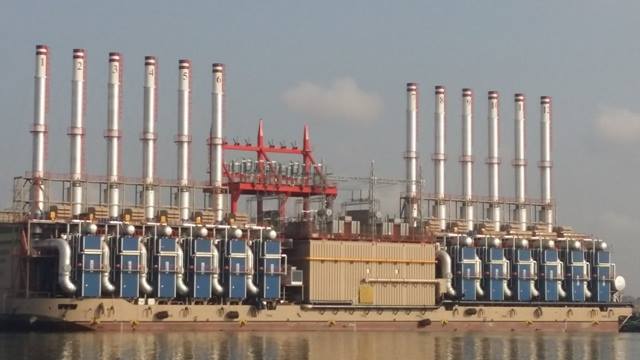Power Minister: Load-Shedding Over in Ghana
Ghana’s Ministry of Power released a statement on Dec. 30 proclaiming the end of the country’s load-shedding program.
The news may not be welcomed by all of the nation’s residents however, as many Ghanaians were reportedly looking forward to the power minister’s self-promised resignation, if load shedding had not been terminated by year end.
Citi 97.3 FM, an English-speaking radio station that operates from Adabraka in Accra, the capital of Ghana, reported that the country has not had a stable power supply for at least the last four years. The crisis has worsened during the past two years, resulting in job losses as industries have been forced to cut back on usage.
Power Minister Dr. Kwabena Donkor was summoned before the Government Assurance Committee of Ghana’s Parliament on Dec. 23 for questioning about the ongoing problems. The committee pursues all assurances, promises, and undertakings given by ministers, and reports to the house on the extent to which assurances have been carried out.
The minister has faced some scrutiny over a deal made earlier this year with the Africa Middle East Resources Investment Group (AMERI). The group is headed by Shaikh Ahmed Bin Dalmook Al Maktoum, a member of the ruling family of the United Arab Emirates, and is said to include a team of executives from around the world.
The contract with AMERI was for the procurement, installation, and operation of 10 General Electric gas turbines. According to some reports, the market value for the outright purchase of the equipment was about $220 million, but AMERI was paid $510 million. Some escalation in the cost is to be expected because the agreement was on a build, own, operate, and transfer basis, but detractors of the deal suggest that a similar transaction between Athens, Greece–based METKA S.A. and Ghana was completed for only $350 million. Critics also point to a deal between General Electric and Algeria, which was supposedly signed for $161 million, as evidence that Ghana overpaid.
However, AMERI has argued that the charges are not excessive. In a legal notice, AMERI noted that auxiliaries, balance of plant, civil works, substation, installation of equipment, cost of financing, operation, maintenance, and more, are not included in the outright purchase price that was reported. Donkor agreed that the cost was competitive.
“I must state on record that AMERI is the cheapest plant we have in the country. It is cheaper than all the other plants in the country. In terms of thermal plants, it is the cheapest and offers the best in terms of tariff charges,” Donkor said.
The government has also implemented other initiatives to address the power supply shortfall. A 225-MW Karpower barge (Figure 1) was delivered from Turkey on Nov. 28. The barge is part of a 10-year power purchase agreement between the state utility Electricity Co. of Ghana and Karpowership Ghana Co. Ltd. Heavy fuel oil will be used to generate power initially, but the equipment can also be operated with natural gas.
 |
1. Shore power. The 225-MW Karpower barge arrived in Tema, Ghana, in late November to help ease incessant blackout concerns. Courtesy: Ghana Ministry of Power |
The Ministry of Power noted that commissioning is underway on the AMERI plant and on the first unit of the 220-MW Kpone Thermal Plant. A 120-MW TICO steam expansion has been completed and the first 120-MW phase of the 360-MW Sunon Asogli Plant is near completion.
Although Donkor said that load shedding is over in Ghana, the fact is that the country’s electricity supply is still not 100% reliable. Citi 97.3 FM said that the minister’s definition of load shedding doesn’t include “intermittent outages caused by technical faults, which can happen at any time and cannot always be controlled.” Therefore, recurrent blackouts are likely to continue for Ghanaians.
—Aaron Larson, associate editor (@AaronL_Power, @POWERmagazine)